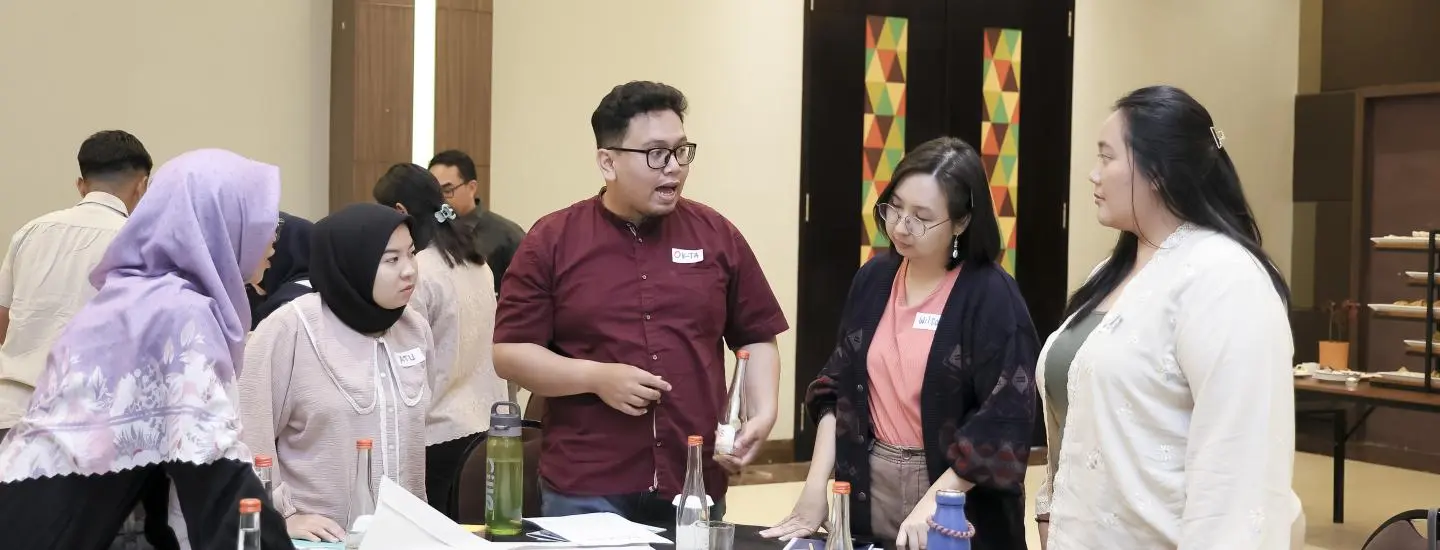Source WRI-Indonesia.org – January 22, 2025
This article has been published on wi-indonesia.org with the title "Urban Futures Consortium Learns about Food Systems from Various Perspectives", click to read: https://wri-indonesia.org/id/berita/konsorsium-urban-futures-belajar-tentang-sistem-pangan-dari-berbagai-perspektif
Poorly managed food systems result in losses both economically and environmentally. In the period 2000-2019, food losses and waste in Indonesia causing losses reaching 213-551 trillion rupiah/year. Not to mention the emissions caused by the accumulation of food waste and waste have an impact on greenhouse gas (GHG) emissions reaching 1,702.9 MtCO2ek. In fact, if managed properly, there are 61-125 million people in Indonesia whose food and nutritional needs can be met, considering that hunger in Indonesia is ranked 77 world.
Therefore, the transformation of the food system in Indonesia needs to be a concern for various parties, starting from the government, private sector, civil society organizations, communities, society to young people as the main agents. Young people have a strategic role to encourage innovation, create awareness, and drive changes that support a sustainable food system. The food system also needs to be viewed holistically from various aspects, such as the environment, health, social, and economy.
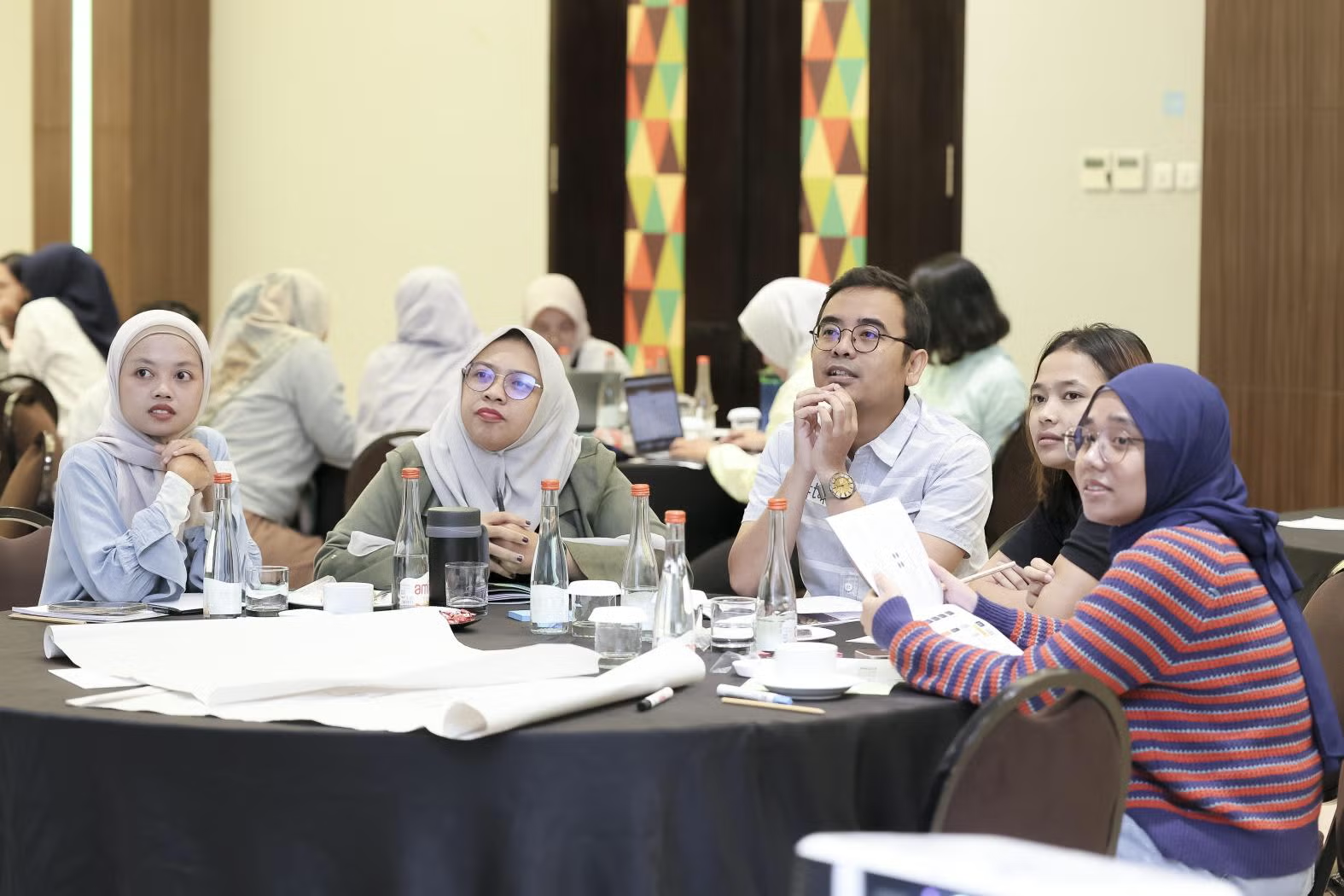
On September 17-19, 2024, WRI Indonesia had the opportunity to provide Food System training for the entire implementing consortium of the Urban Futures program and stakeholders, namely the government at the national and regional levels such as representatives of the Ministry of National Development Planning (PPN)/Bappenas and the Regional Development Agency (Bappeda) of West Manggarai Regency.
"This activity is one of a series of training activities for partners of the Urban Futures program implementing organizations and partners of the central and regional governments. Previously, partners of the program implementing organizations and government partners have participated in several other trainings, including the Training on Meaningful Inclusive Youth Participation. This series of trainings is expected to be able to support the transformation of the food system in Bandung and West Manggarai that we aspire to," said Laily Himayati as Regional Coordinator of the Urban Futures Indonesia program of the Humanist and Social Innovation Foundation.
Urban Futures is a program managed by the Humanis and Social Innovation Foundation (Humanis) as an effort to encourage young people to influence the decision-making process and access to quality job opportunities in the food sector. "In this Urban Futures program, we target or have interventions in two cities, namely Bandung and West Manggarai. The choice was because one, Bandung City is a fairly large metropolitan city and we see that Labuan Bajo City in West Manggarai is a newly developing city so it also needs intervention from the perspective of its food system," explained Romauli Panggabean, Environmental Economist WRI Indonesia.
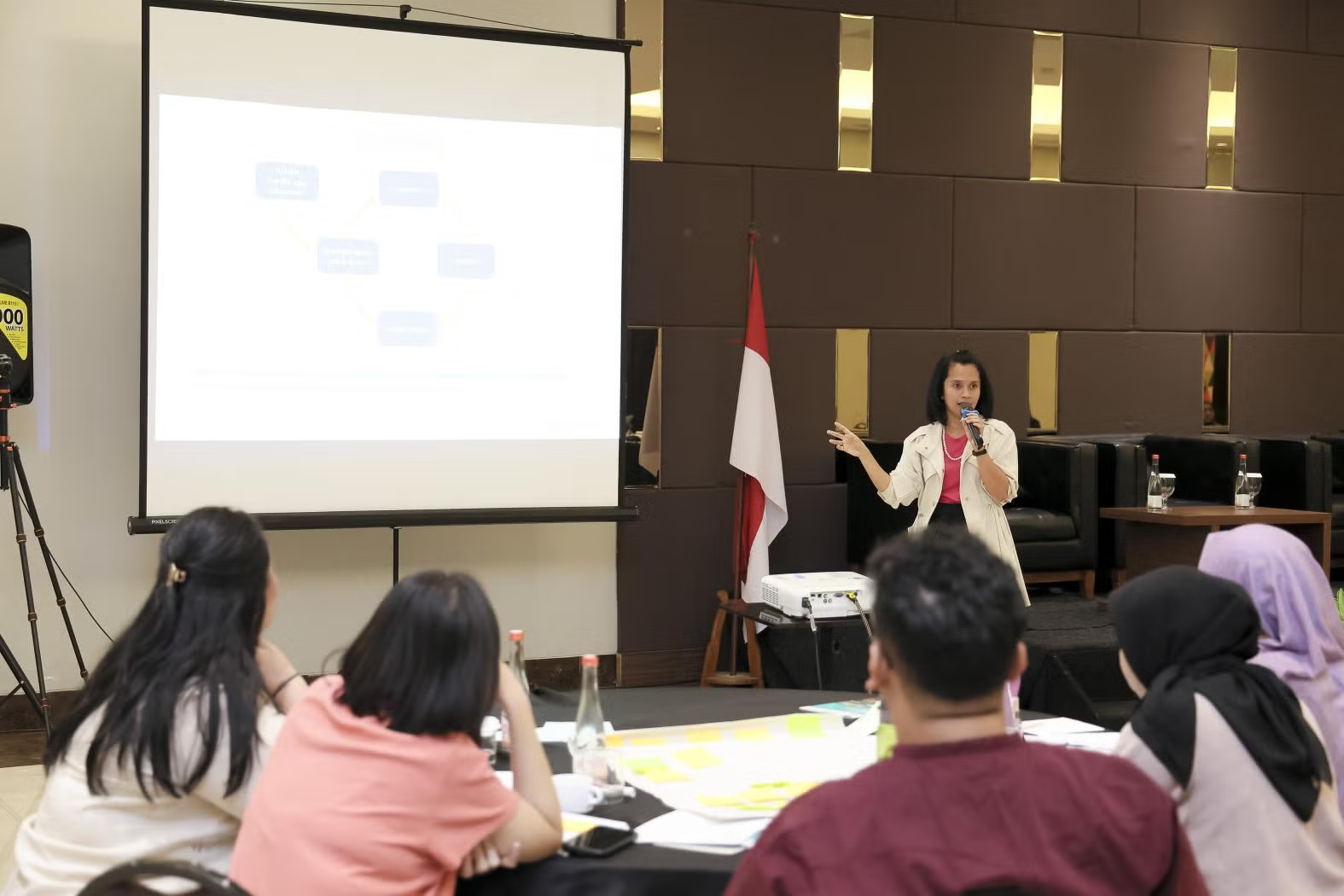
The food system training was considered important by the participants, because the current condition of the food system needs to be a shared concern. "We are currently initiating a local and sustainable alternative food system. Therefore, in this training, we feel like we are strengthened by meeting friends who have the same awareness of the food system," said Vania Febriyantie from Seni Tani.
The training held in Bandung also raised the importance of inclusivity of the food system. "An inclusive food system is of course a food system that fulfills the right to healthy food for all groups, especially the disabled, elderly, and children," said Dudi Rahimi as a representative of the Cahaya Inklusi Foundation, Bandung who was also involved in the training.
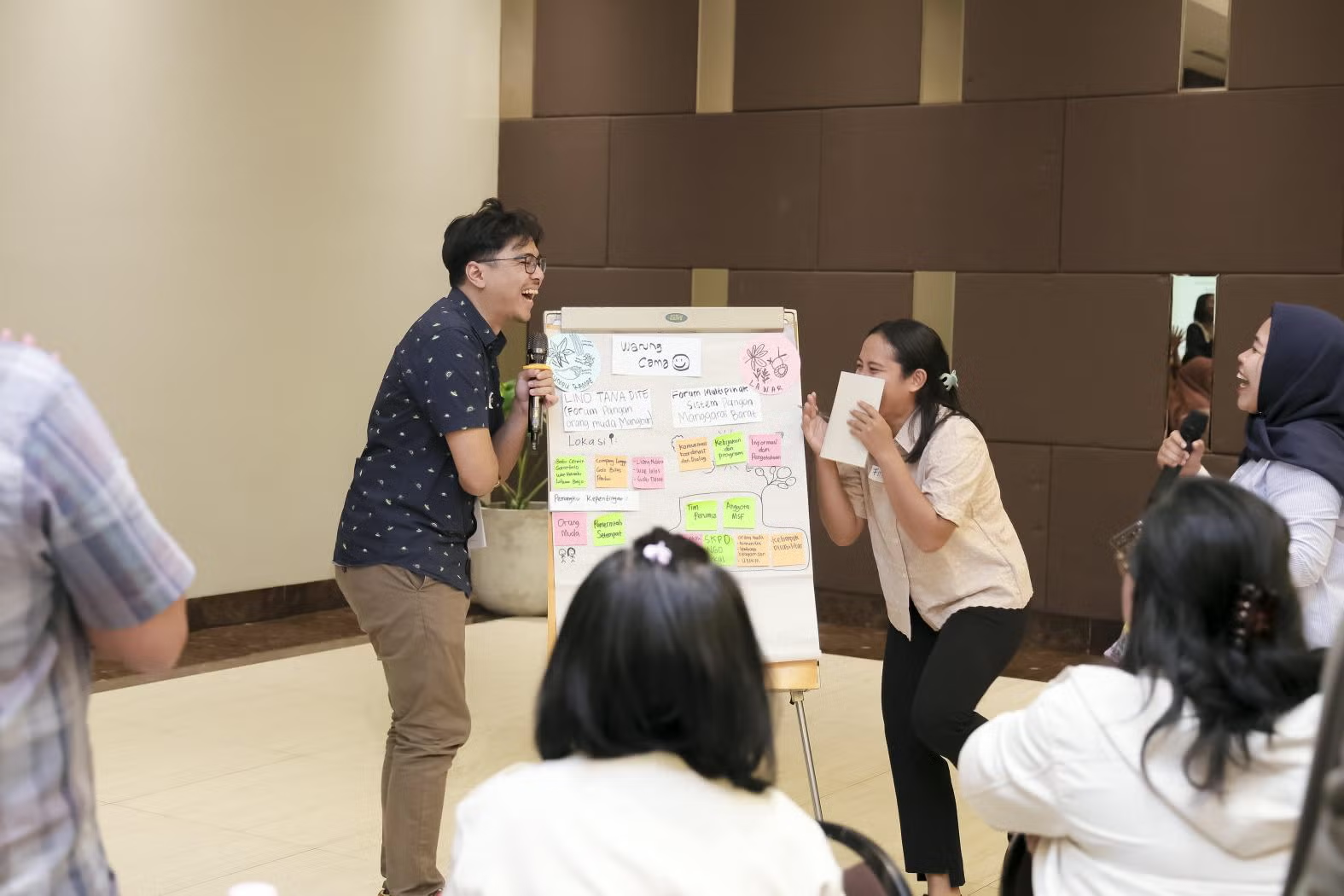
Participants who attended not only listened to explanations about the food system, but also participated in the problems of the food system in Indonesia. Starting from the first day, participants had the opportunity to explore the food system through systems thinking. Then, participants were invited to understand the importance of diverse foods for health and environmental sustainability. Then at the end of the session, participants discussed and designed a diverse healthy menu.
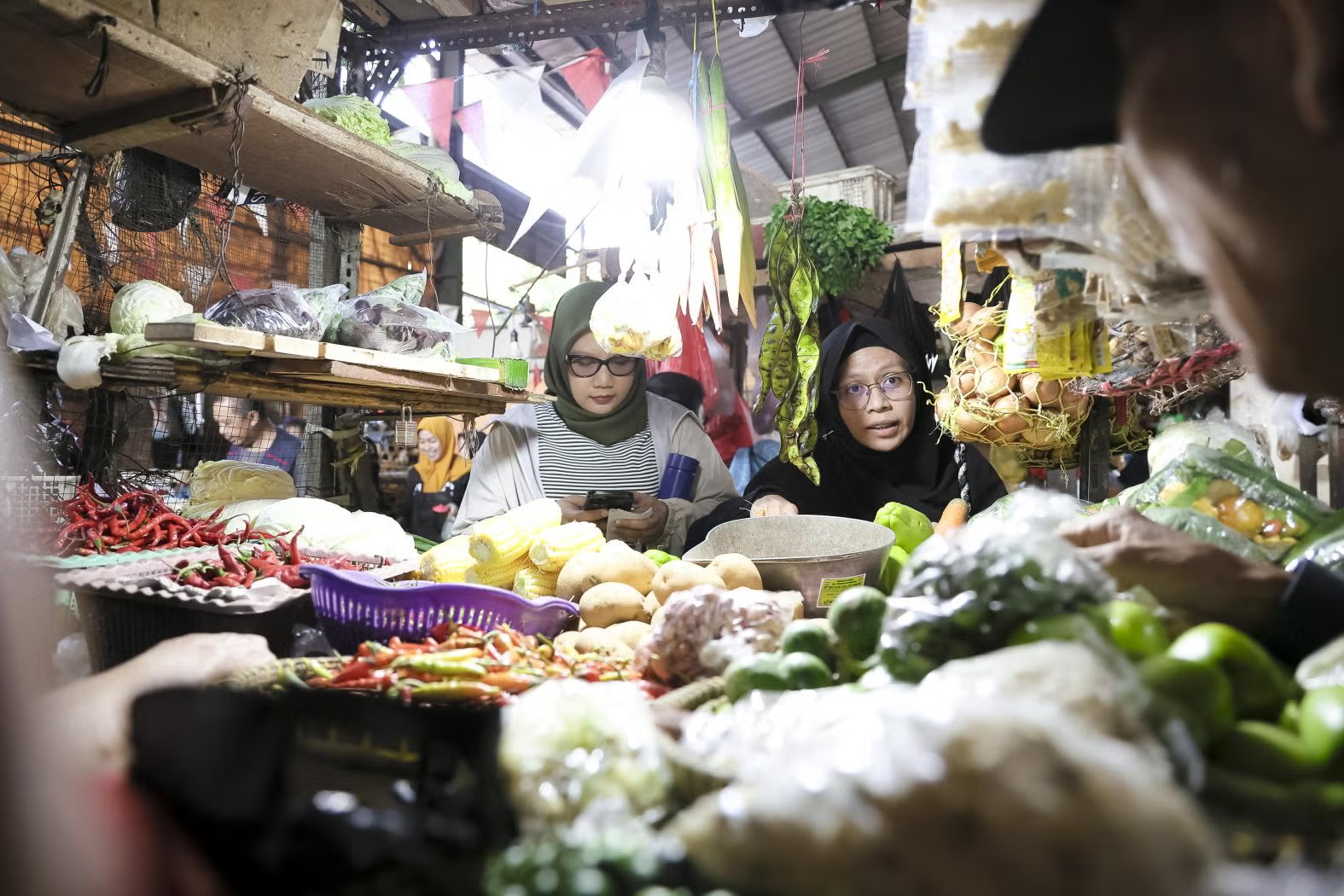
On the second day, participants had the opportunity to visit Cihaurgeulis Market in Cibeunying Kaler District, Bandung City, to understand the concept of food systems in everyday life. In addition to looking for food ingredients, participants also discussed with traders to learn about the local food distribution process and the management of food waste in the market.
After shopping, each group was asked to process the food ingredients in a cooking competition. Each group was asked to cook a dish with the principle of Isi Piringku, which is to utilize diverse local foods with balanced nutrition, and the number of dishes is adjusted to the family portion to minimize food waste, as learned in class the previous day.
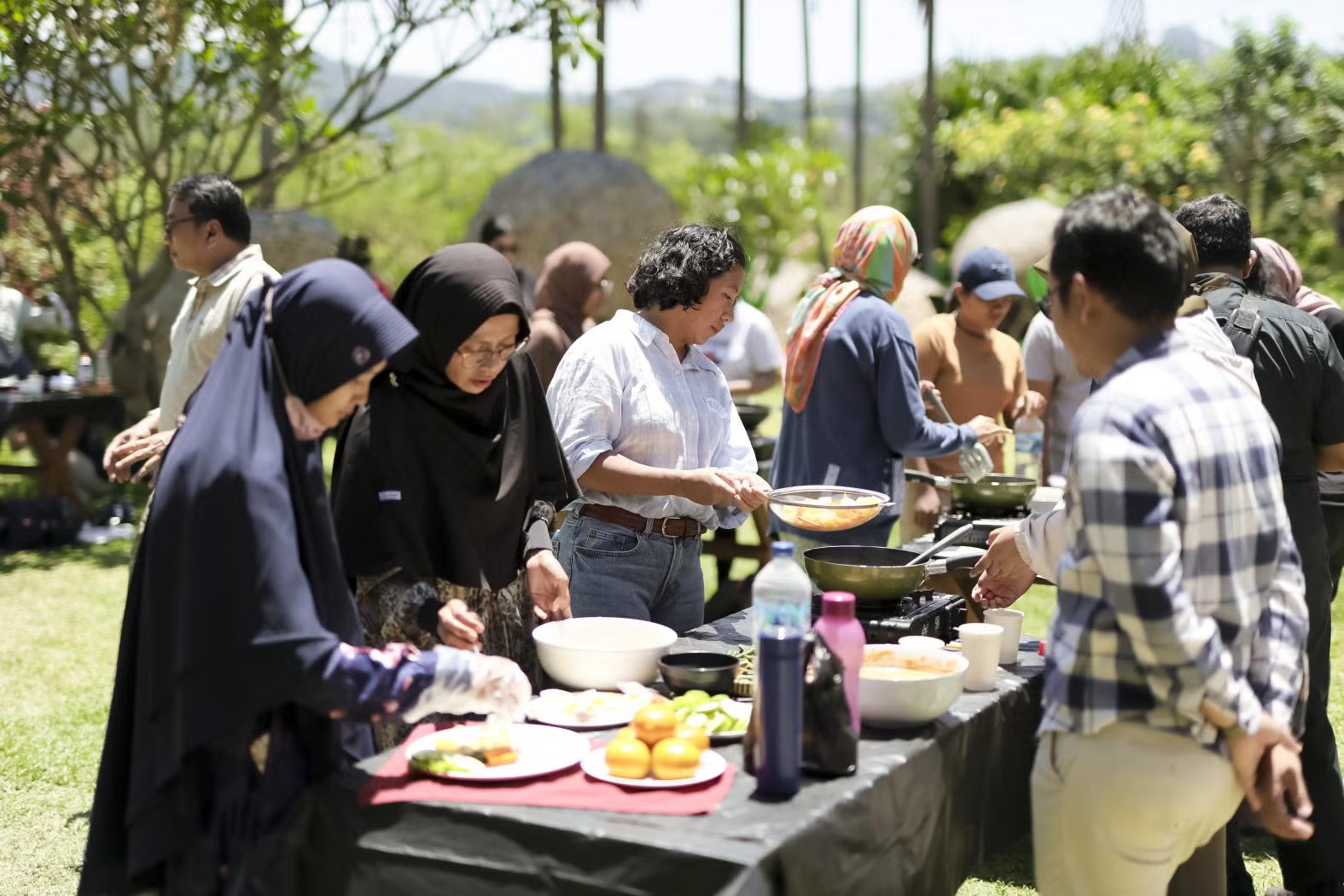
After the participants processed and consumed their food, they also had the opportunity to see alternative methods in processing food waste. On this occasion, Adi Rosadi from Imah Maggot Bantaran also facilitated participants in understanding the use of maggots and how to cultivate them.
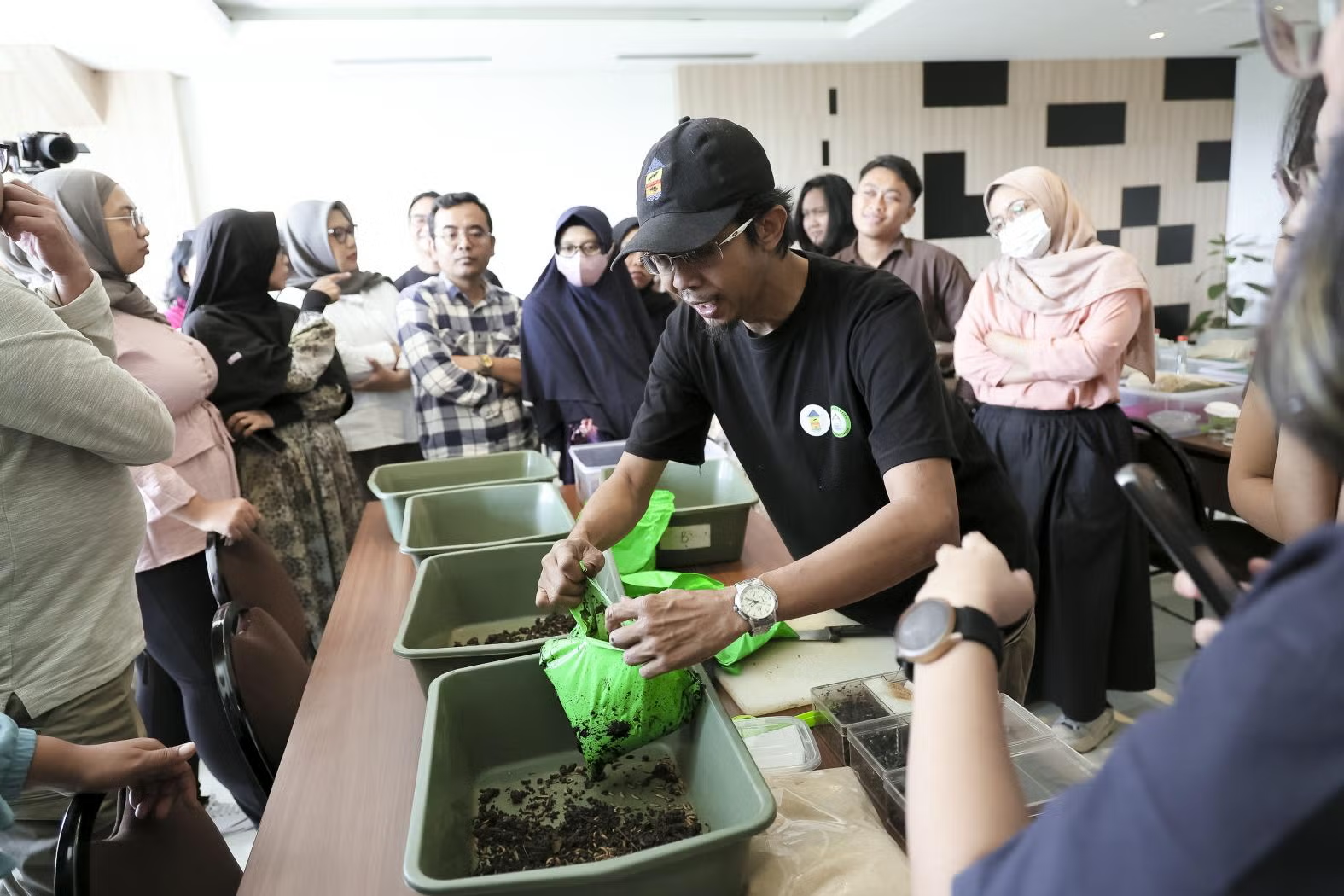
On the last day, the training was closed with a presentation on urban food systems. This material can be a provision for participants in developing and implementing innovative strategies to improve food security in urban areas. "In the future, I will share the knowledge gained in this training with young people in West Manggarai," said Gonselis Vitirani Madura from the Komodo Indonesia Lestari Foundation (Yakines).
